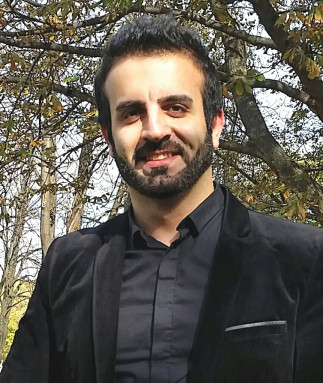Reza Moosavi Askari, Département de physique, Université de Montréal
séminaire de doctorat
Abstract:
Bose Einstein Condensate (BEC) describes a transition of a dilute gas of bosons cooled under a critical temperature until it reaches a state with macroscopic occupation of lowest-energy state. This idea can be extended to the emergence of BEC in quantum magnets by using an approximation of mapping spin systems into systems of gases of itinerant hard-core bosons. The number of bosons, which is associated to the longitudinal magnetization, can be tuned by an external magnetic field acting as a chemical potential.
Here, an organic molecular quantum magnet will be presented as a candidate for magnetic realization of gases of bosons. This purely organic free radical (NIT2Py) has a great stability at room temperature and can be condensed into solid. Due to not having a full shell, NIT2Py bears a magnetic moment. In order to calculate the strength and signs of magnetic interactions between magnetic moments of different molecules in NIT2Py crystals, we used electronic-structure calculations. Finally, experimental evidences obtained by magnetization and specific heat measurements suggest a BEC-like behavior in this organic quantum magnet. This is expected to give rise to a more profound understanding of the physics in vicinity of quantum critical points (QCPs) triggered by magnetic field, and bringing light to the exotic quantum states and phase transitions in this material.
Cette conférence est présentée par le RQMP Versant Nord du Département de physique de l'Université de Montréal et le Département de génie physique de Polytechnique Montréal.

